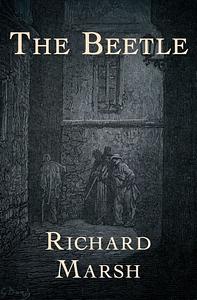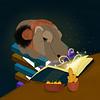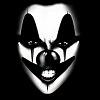Take a photo of a barcode or cover
Part 1 – good
Part 2 – not good
Part 3 – not good
Part 4 – good
I read somewhere once that authors used to get paid by the word. This book is a great example of this policy. There is a lot of filler here. I would have liked this much more as a novella or even a short story. The middle section of this book dragged for me and there were a few times I thought about DNF’ing. Another review stated that this book came out at the same time as Dracula and for a while was more popular. I can see after having read both of them why Dracula has stood the test of time while this one faded into the background
Part 2 – not good
Part 3 – not good
Part 4 – good
I read somewhere once that authors used to get paid by the word. This book is a great example of this policy. There is a lot of filler here. I would have liked this much more as a novella or even a short story. The middle section of this book dragged for me and there were a few times I thought about DNF’ing. Another review stated that this book came out at the same time as Dracula and for a while was more popular. I can see after having read both of them why Dracula has stood the test of time while this one faded into the background
dark
mysterious
tense
medium-paced
Plot or Character Driven:
Plot
Strong character development:
No
Loveable characters:
Complicated
Diverse cast of characters:
No
Flaws of characters a main focus:
Complicated
So this is the book that out-sold Bran Stoker's Dracula six times over in their shared year of publication? It is not good. It was kind of fun to read as a curio, however. Even though the whole thing is a big pile of classism and orientalist racism held together by a string of coincidences, told in peculiar prose, and ending in one of the most bland anticlimaxes I've ever read.
Not bad. Slow start but picked up in the second half. Review here - https://www.alwroteabook.com/2020/06/28/the-beetle-by-richard-marsh/
dark
mysterious
tense
medium-paced
Plot or Character Driven:
Character
Strong character development:
No
Loveable characters:
No
Diverse cast of characters:
No
Flaws of characters a main focus:
Complicated
Read for a class so I was more focused on dissecting and analyzing than I was actually reading. Hopefully I can pick this up again in the future!
adventurous
mysterious
sad
slow-paced
Plot or Character Driven:
Plot
Strong character development:
No
Loveable characters:
Complicated
Diverse cast of characters:
No
Flaws of characters a main focus:
Complicated
"The Beetle" was written by a white Englishman in the late 1800s - and crucial parts of the book are set in Egypt, a Middle Eastern person plays an important role. It goes about as "well" as expected. The Egyptian (?)* is immediately portrayed as exotic and mysterious, with undertones of danger, that is his whole characterisation. Likewise, Egypt serves as nothing but the place where mysterious and uncivilised barbaric things are happening and virtuous English travellers are kidnapped right off the street... Basically, the book follows the principle of "white Christian = good, anything else = shady as f*ck". Additionally, I am writing this with 30 pages left to go and our three male protagonists are currently dashing through London in order to save a damsel in distress... So, yes... The book is very much 'of its time'.
The author has been dead for about 105 years, he is not making bucks from this novel, so what I described costs the book a star or two in my rating, but it doesn't make me want to throw it across the room and I am fine with having spent money and time on it. I am aware that this was the most likely outcome from the setup described at the beginning of this text... But I think the situation needed a Heads Up, even from me, who rarely writes reviews. If Xenophobia Out Of Ignorance is (understandably) a big no-go for you, skip this book, it's not *that* good...
It was alright, I particularly enjoyed the part that is (seemingly) narrated by Robert Holt, that was really interesting and creepy, but it's not the next book that I will go around recommending.
*We never learn where exactly he is from, he is just referred to as "the Arab". But the book seems to treat the Middle East pretty much as 'those countries over there', as a monolith, using "Arab" as a catch-all term so I'd rather not take that identifier straight from the pages...
The author has been dead for about 105 years, he is not making bucks from this novel, so what I described costs the book a star or two in my rating, but it doesn't make me want to throw it across the room and I am fine with having spent money and time on it. I am aware that this was the most likely outcome from the setup described at the beginning of this text... But I think the situation needed a Heads Up, even from me, who rarely writes reviews. If Xenophobia Out Of Ignorance is (understandably) a big no-go for you, skip this book, it's not *that* good...
It was alright, I particularly enjoyed the part that is (seemingly) narrated by Robert Holt, that was really interesting and creepy, but it's not the next book that I will go around recommending.
*We never learn where exactly he is from, he is just referred to as "the Arab". But the book seems to treat the Middle East pretty much as 'those countries over there', as a monolith, using "Arab" as a catch-all term so I'd rather not take that identifier straight from the pages...
dark
mysterious
tense
medium-paced
Plot or Character Driven:
Plot
Strong character development:
No
Loveable characters:
Complicated
Diverse cast of characters:
No
Flaws of characters a main focus:
Complicated
Graphic: Racial slurs, Racism, Xenophobia, Islamophobia
Moderate: Violence, Murder
Minor: Misogyny, Sexism
As he came on, something entered into me, and forced itself from between my lips, so that I said, in a low, hissing voice, which I vow was never mine, “THE BEETLE!”
***
Paul Lessingham! Beware! THE BEETLE!
Poisoned Pen Press is an American publisher of (primarily) crime and detection novels, including the US editions of the highly successful British Library Crime Classics series which is resurrecting many forgotten classics of the Golden Age of crime fiction. Poisoned Pen has recently embarked on a new project which promises to be just as exciting Together with the Horror Writers Association, it is launching The Haunted Library of Horror Classics, a collection of classic horror novels presented in new editions, with commentaries and notes to introduce the contemporary reader to the historical and cultural context of the featured works.
One of the first publications in the series is The Beetle by Richard Bernard Heldmann, better known by his pen-name Richard Marsh. The novel was originally issued as “The Beetle: A Mystery” in 1897. This was the same year which saw the publication of Bram Stoker’s Dracula and it may come as a surprise that The Beetle initially outsold Stoker’s cult vampire novel, going into no less than 15 editions before the Great War. Like Dracula, Marsh imagines a supernatural entity unleashed in Victorian London, except that the monster here is no vampire, but an entity rather more difficult to pin down: a “Nameless Thing” which, although vaguely bearing the features of a hideous man, scarcely seems to be human and, if it is, is of indeterminate sex. This Being, which calls itself one of the “Children of Isis”, and I therefore, presumably, of Egyptian origin, appears to have mesmeric powers and the magical ability to turn into a beetle – or rather THE BEETLE. Indeed, the characters who come across this infernal monster tend to lose their composure as soon as they hear the said two words, which Marsh generally expresses in GARISH CAPITAL LETTERS whenever they appear in the text. Although it is not clear how THE eponymous BEETLE ended up in Kensington, it seems that the main purposes of its City sojourn is to haunt one Paul Lessingham, an upcoming politician who, in younger days, made the fatal mistake of visiting a dubious Egyptian establishment, ending up a prisoner of an ancient esoteric cult. Lessingham’s past has caught up with him with a vengeance and threatens to put his and his fiancée’s life in mortal danger.
As is common in many Gothic and sensation novels of the era, each one of The Beetle’s four “books” features a different first-person narrator. In “The House with the Open Window”, unemployed clerk Robert Holt seeks shelter in a seemingly abandoned house, only to fall under the mesmeric powers of the Egyptian fiend. In “The Haunted Man”, the story is taken up by eccentric, hyperactive inventor Sydney Atherton, an acquaintance of Lessingham and his rival in love. The object of their attention is Miss Marjorie Lindon, who seems to be the most wanted young woman in London and is also being pursued by the monster him/her/itself. Marjorie is also the narrator of the third Book: “The Terror by Night and the Terror by Day”. The novel ends with notes “extracted from the Case-Book of the Hon. Augustus Champnell, Confidential Agent”, a Sherlock-Holmes-like figure who tries to bring his detective skills to bear on the lurid mystery of THE BEETLE and leads a feverish hunt all over London for the elusive Egyptian insectoid.
This edition opens with a rather convoluted warning that THE BEETLE and novels of its ilk might “exemplify ideas that are no longer current, attitudes and behaviours that are no longer tolerated, standards that are no longer judged valid”. You don’t say so! Like most examples of “Egyptian Gothic”, Marsh’s novel relies for its effect on racist and xenophobic fears, much as first and second-wave Gothic was often decidedly prejudiced against Southern Europeans and Roman Catholics. Knowing the cultural context helps one to turn a blind eye on ideas which are past their sell-by date. Even so, the constant references to “that Arab” and “diabolical Asiatic” and the idea that the civilised Western world is under threat from a creature hailing from the “dirty streets and evil smells” of Egypt starts to become jarring. And, frankly, the very thought that an ancient cult favours as choice cuts for human sacrifice, not just “white women” but, more specifically, fine examples of English maidenhood, is frankly ludicrous.
Marsh’s attitudes to women and the working classes are not much better. In that respect, however, the narrative has several redeeming features, not least the strong character of Marjorie Lindon (so much more than just a demure “damsel in distress) and the fact that he lampoons all sectors of society (the farcical figure of Marjorie’s politician father is a case in point).
This brings me to another aspect of Marsh’s novel which might be puzzling to a modern reader. Horrific though it is, THE BEETLE has an underlying comedic streak, which is particularly evident in Atherton’s narrative segment. This ambivalence might not be to everyone’s taste and, to be honest, I found that the changes in tone dampened the more horrific aspects of the novel and sometimes hovered towards self-parody. To a generation used to explicit horror or, on the other hand, to subtly unsettling psychological thrills, THE BEETLE might seem like a madcap roller-coaster ride.
There’s no doubt however that at its best, as in Holt’s encounter with the fiend, or the final, thrilling chapters, THE BEETLE still packs a punch and is a worthy addition to The Horror Library. This edition features an introduction by Chelsea Quinn Yarbro, together with biographical details about Richard Marsh (including the fact that he is the grandfather of Robert Aickman, celebrated author of ‘weird fiction’), questions for discussion and suggestions for further “horrific reading”.
***
Paul Lessingham! Beware! THE BEETLE!
Poisoned Pen Press is an American publisher of (primarily) crime and detection novels, including the US editions of the highly successful British Library Crime Classics series which is resurrecting many forgotten classics of the Golden Age of crime fiction. Poisoned Pen has recently embarked on a new project which promises to be just as exciting Together with the Horror Writers Association, it is launching The Haunted Library of Horror Classics, a collection of classic horror novels presented in new editions, with commentaries and notes to introduce the contemporary reader to the historical and cultural context of the featured works.
One of the first publications in the series is The Beetle by Richard Bernard Heldmann, better known by his pen-name Richard Marsh. The novel was originally issued as “The Beetle: A Mystery” in 1897. This was the same year which saw the publication of Bram Stoker’s Dracula and it may come as a surprise that The Beetle initially outsold Stoker’s cult vampire novel, going into no less than 15 editions before the Great War. Like Dracula, Marsh imagines a supernatural entity unleashed in Victorian London, except that the monster here is no vampire, but an entity rather more difficult to pin down: a “Nameless Thing” which, although vaguely bearing the features of a hideous man, scarcely seems to be human and, if it is, is of indeterminate sex. This Being, which calls itself one of the “Children of Isis”, and I therefore, presumably, of Egyptian origin, appears to have mesmeric powers and the magical ability to turn into a beetle – or rather THE BEETLE. Indeed, the characters who come across this infernal monster tend to lose their composure as soon as they hear the said two words, which Marsh generally expresses in GARISH CAPITAL LETTERS whenever they appear in the text. Although it is not clear how THE eponymous BEETLE ended up in Kensington, it seems that the main purposes of its City sojourn is to haunt one Paul Lessingham, an upcoming politician who, in younger days, made the fatal mistake of visiting a dubious Egyptian establishment, ending up a prisoner of an ancient esoteric cult. Lessingham’s past has caught up with him with a vengeance and threatens to put his and his fiancée’s life in mortal danger.
As is common in many Gothic and sensation novels of the era, each one of The Beetle’s four “books” features a different first-person narrator. In “The House with the Open Window”, unemployed clerk Robert Holt seeks shelter in a seemingly abandoned house, only to fall under the mesmeric powers of the Egyptian fiend. In “The Haunted Man”, the story is taken up by eccentric, hyperactive inventor Sydney Atherton, an acquaintance of Lessingham and his rival in love. The object of their attention is Miss Marjorie Lindon, who seems to be the most wanted young woman in London and is also being pursued by the monster him/her/itself. Marjorie is also the narrator of the third Book: “The Terror by Night and the Terror by Day”. The novel ends with notes “extracted from the Case-Book of the Hon. Augustus Champnell, Confidential Agent”, a Sherlock-Holmes-like figure who tries to bring his detective skills to bear on the lurid mystery of THE BEETLE and leads a feverish hunt all over London for the elusive Egyptian insectoid.
This edition opens with a rather convoluted warning that THE BEETLE and novels of its ilk might “exemplify ideas that are no longer current, attitudes and behaviours that are no longer tolerated, standards that are no longer judged valid”. You don’t say so! Like most examples of “Egyptian Gothic”, Marsh’s novel relies for its effect on racist and xenophobic fears, much as first and second-wave Gothic was often decidedly prejudiced against Southern Europeans and Roman Catholics. Knowing the cultural context helps one to turn a blind eye on ideas which are past their sell-by date. Even so, the constant references to “that Arab” and “diabolical Asiatic” and the idea that the civilised Western world is under threat from a creature hailing from the “dirty streets and evil smells” of Egypt starts to become jarring. And, frankly, the very thought that an ancient cult favours as choice cuts for human sacrifice, not just “white women” but, more specifically, fine examples of English maidenhood, is frankly ludicrous.
Marsh’s attitudes to women and the working classes are not much better. In that respect, however, the narrative has several redeeming features, not least the strong character of Marjorie Lindon (so much more than just a demure “damsel in distress) and the fact that he lampoons all sectors of society (the farcical figure of Marjorie’s politician father is a case in point).
This brings me to another aspect of Marsh’s novel which might be puzzling to a modern reader. Horrific though it is, THE BEETLE has an underlying comedic streak, which is particularly evident in Atherton’s narrative segment. This ambivalence might not be to everyone’s taste and, to be honest, I found that the changes in tone dampened the more horrific aspects of the novel and sometimes hovered towards self-parody. To a generation used to explicit horror or, on the other hand, to subtly unsettling psychological thrills, THE BEETLE might seem like a madcap roller-coaster ride.
There’s no doubt however that at its best, as in Holt’s encounter with the fiend, or the final, thrilling chapters, THE BEETLE still packs a punch and is a worthy addition to The Horror Library. This edition features an introduction by Chelsea Quinn Yarbro, together with biographical details about Richard Marsh (including the fact that he is the grandfather of Robert Aickman, celebrated author of ‘weird fiction’), questions for discussion and suggestions for further “horrific reading”.
This book was interesting. It is a book that was originally published in the same year as Dracula and has the Gothic, horror feel. Unfortunately, it had pacing issues and ups and downs in plot that through me off in the enjoyment of the story. It started out great, really drawing you into the story but then dropped the plot too far. It wasn't until the end where it sort of picked up again, but by then, it was hard to be excited about that.
Not a book for me.
Thank you for the early copy to review. #Netgalley #PoisonedPenPress
Not a book for me.
Thank you for the early copy to review. #Netgalley #PoisonedPenPress
This is the weirdest book I have ever read. It's also the scariest book I've ever read, and I couldn't read it in the dark in my bed, like I usually do when I read.
This book combines occult, mesmerism, Orientalism, fear, both psychological and physical, and beetles all into one. I don't want to put in any spoilers, because if I did, it would ruin the novel, but this book is definitely addicting if you like Victorian horror literature.
For me, the fear came from the loss of control a lot of characters face. There are also terrifying descriptions of a spider like beetle that crawls up people and into their beds, a kidnapping, a train chase, attempted murder, and more.
I've read horror novels in the past, but none have scared me as much as this novel did. I highly recommend it to anyone who likes Victorian literature, horror novels, or just want to read a novel that's extremely weird and twisted.
This book combines occult, mesmerism, Orientalism, fear, both psychological and physical, and beetles all into one. I don't want to put in any spoilers, because if I did, it would ruin the novel, but this book is definitely addicting if you like Victorian horror literature.
For me, the fear came from the loss of control a lot of characters face. There are also terrifying descriptions of a spider like beetle that crawls up people and into their beds, a kidnapping, a train chase, attempted murder, and more.
I've read horror novels in the past, but none have scared me as much as this novel did. I highly recommend it to anyone who likes Victorian literature, horror novels, or just want to read a novel that's extremely weird and twisted.
First published in 1897, The Beetle is a strange little mystery adventure story. I mistakenly went into it thinking it was a horror or dark fiction tale. And while I guess it could be considered horror, only the very first portion was the least bit scary.
A blend of Isis worship, mystery, Keystone Cop chases, hypnosis, politics, humor and romance, it's difficult to categorize The Beetle. It is well written-it's just all over the place. Even though it wasn't horror, I did enjoy this book-uneven though it was, but I only recommend it to those that think this description sounds interesting. I don't regret reading it, but in all honesty? I'm glad that it's over.
A blend of Isis worship, mystery, Keystone Cop chases, hypnosis, politics, humor and romance, it's difficult to categorize The Beetle. It is well written-it's just all over the place. Even though it wasn't horror, I did enjoy this book-uneven though it was, but I only recommend it to those that think this description sounds interesting. I don't regret reading it, but in all honesty? I'm glad that it's over.






